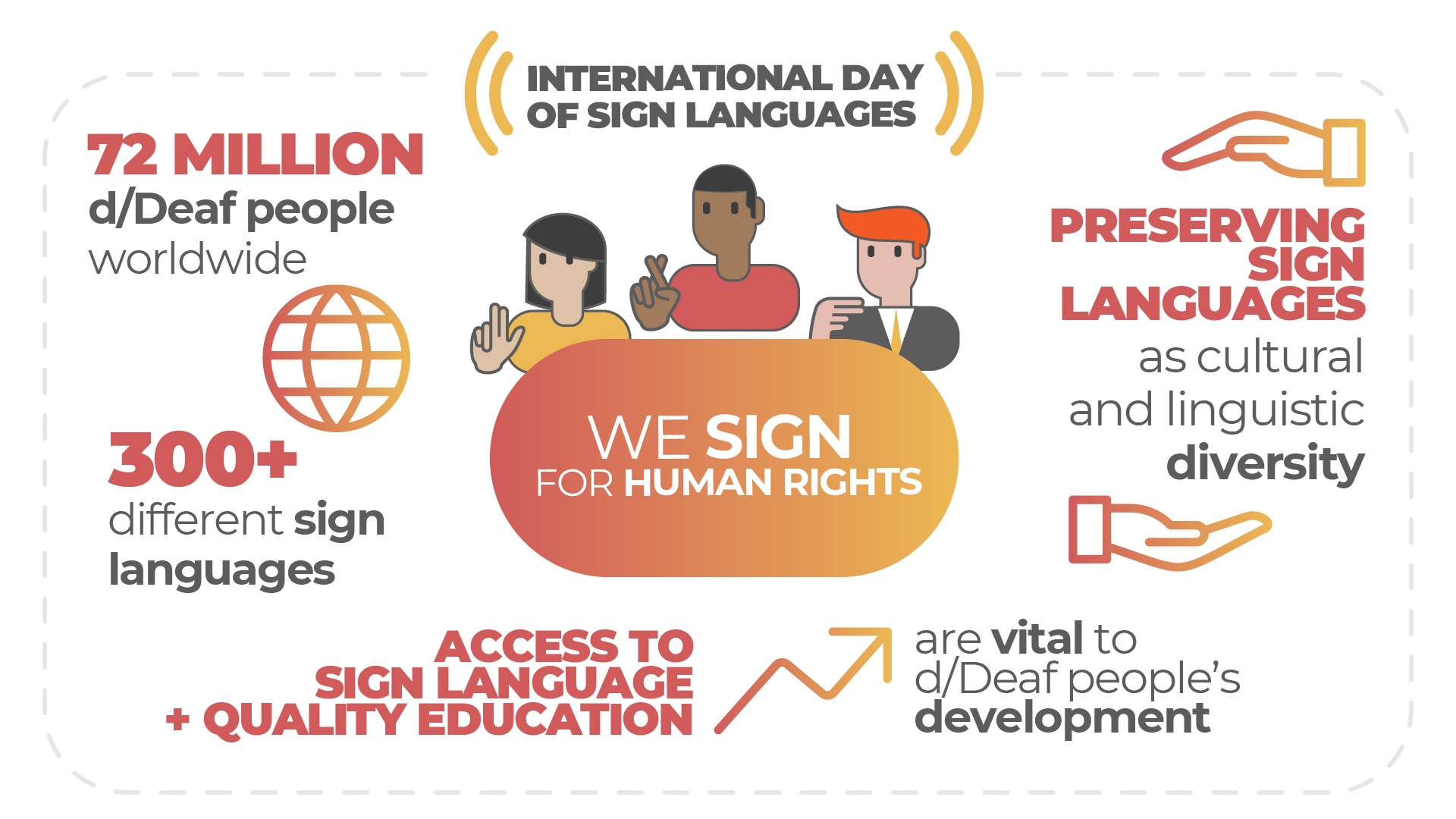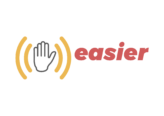On September 23, 2021, we celebrate the 4th International Day of Sign Languages, which gives us a unique opportunity to promote and support the linguistic identity and cultural diversity of all sign language users.
The International Day of Sign Languages
According to the World Federation of the Deaf, there are 72 million d/Deaf people worldwide who collectively use more than 300 different sign languages. The International Day of Sign Languages was established to raise awareness of the importance of sign languages in the full realization of their human rights. The resolution establishing the day was adopted by the United Nations General Assembly on December 19, 2017. It acknowledges that early exposure to sign language and access to services provided in sign language (such as quality education) are vital to the development of d/Deaf individuals and critical to the achievement of the internationally agreed development goals. It also recognizes the importance of preserving sign languages as part of linguistic and cultural diversity and stresses the significance of the principle “nothing about us without us”.

Deaf People’s Rights Are Human Rights!
Human rights are universal, indivisible, and interconnected and belong to all people, regardless of their gender, origin, race, religion, language, or any other status such as disability. To foster human rights globally, on December 10, 1948, the United Nations General Assembly adopted the first global enunciation of human rights – the Universal Declaration of Human Rights (UDHR). The UDHR was an important milestone, which had inspired and paved the way for the adoption of more than seventy human rights treaties around the globe.
And while the progress achieved over the last 73 years in the context of human rights protection is remarkable, unfortunately, due to societal prejudices and erroneous assumptions, d/Deaf people’s rights are often overlooked or even denied. Even though d/Deaf and hard-of-hearing persons are no less capable than their hearing counterparts, they often experience discrimination and are not always treated with the dignity all humans deserve (to learn more about the discrimination of d/Deaf people, read our article on audism). That is because the actual protection of human rights takes more than policy. It takes a commitment on the part of institutions, families, and individuals. It requires a fundamental shift in perception. A significant improvement in the daily lives of d/Deaf people will only be possible once the wider public understands that the limitations d/Deaf people experience are not rooted in their hearing-loss, but rather in the social and environmental barriers. Once societies are designed according to their visual orientation and auditory enhancement needs, d/Deaf people will be able to fully participate in society.
Needless to say that the removal of social barriers benefits not just the persons with disabilities but all members of society. For example, sidewalks without curb cuts make it difficult for persons using wheelchairs to access commerce and services vital to full participation in society. Once stumbling blocks are removed, everyone benefits, from persons in wheelchairs and parents with strollers to the elderly and young kids.
For d/Deaf people, the following barriers are the most hindering:
- Language and communication barriers resulting from limited opportunities to learn sign languages and society’s lack of deaf awareness.
- Challenges faced in local and national services (such as childcare, education, social activities, social care, healthcare, etc.) resulting from the above-mentioned communication barriers.
- Obstacles to achieving independence due to limited employment opportunities resulting from prejudice against d/Deaf persons’ capabilities.
Deaf people have made countless contributions to society (Liisa Kauppinen, Thomas Edison, and Ludwig van Beethoven are just some of the examples). Just imagine how many more would have left their mark if we had removed the barriers holding them back…

